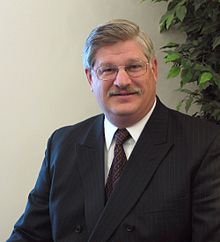Kevin Bauder, former President of Central Baptist Theological Seminary and current Research Professor of Systematic Theology at Central, recently wrote a book, published by Regular Baptist Press, entitled Baptist Distinctives and New Testament Church Order. Earlier this week I purchased the book at the annual meeting of the General Association of Regular Baptist Churches and attended a workshop where Kevin interacted with many pastors on related issues (a workshop moderated by Kevin Mungons of RBP). I performed a hearty skim of the book and believe Kevin’s approach to Baptist distinctives is close to mine. I was especially pleased that the emphasis on the New Testament approach to the Church or – as Kevin says it – New Testament authority was dealt with first. I was also happy that Kevin said in the workshop that this single distinctive is the lynchpin for the other distinctives in the package that Baptists generally believe.
I think it is possible the Baptist historians have been better at identifying this lynchpin than Baptist theologians down through the years. At least discussions about the so-called “primitive” church are plentiful (see Armitage, Orchard, Vedder, etc.). While Baptist peoples have disagreed among themselves about whether the primitive or early biblical churches passed down the pattern for doing church in an unbroken chain through history (e.g., the landmark debate), one thing is clear. Baptists look to the New Testament for doing church. This makes them somewhat dispensational in disposition even if they don’t claim that label. Baptists do not go to the OT for the pattern for how to do church even though OT wisdom can certainly be a guide for life in applicatory ways. But the model is distinctively a NT one.
Out of this comes the main contribution of the modern Baptist movement in my opinion – the clarification of the significance of the local church. This concept moved into mainstream evangelicalism over time and became a major competing model for doing church.

